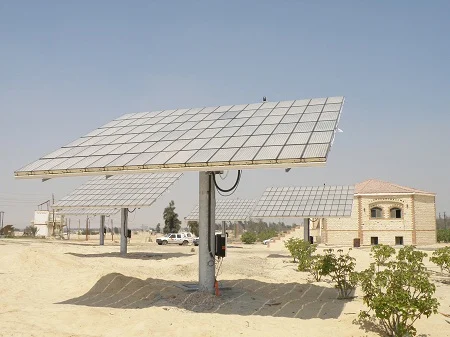A team of German industrial researchers says concentrated photovoltaic (CPV) systems that focus light on to solar cells can provide an effective alternative for powering remote irrigation networks.
CPV systems can also help power other system far removed from developed electric grids.
In an early August announcement, Fraunhofer Solar Energy Systems described a test project in Egypt that used CPV modules to power irrigation systems on a wheat field.

In hot, dry climates like Egypt’s, the pumps needed to tap deep water reserves are typically powered by diesel generators.
But the CPV systems were able to run a 105-foot-deep pump and desalination unit, as well as other equipment.
The Fraunhofer team discovered that the high initial upfront cost of batteries to store solar energy could be reduced by deploying an energy management system at the test site.
That system monitors energy production and needs at the wheat field in real time so the electricity can be routed more efficiently. A small reserve is still kept to power the CPV system’s own sun tracking system.
That system is necessary because CPV systems have to be accurately aligned with sunlight.
As the sun moves across the sky throughout the day, the CPV systems continue to follow the sun so they can focus as much light through a special lens that concentrates it onto collection cells.






